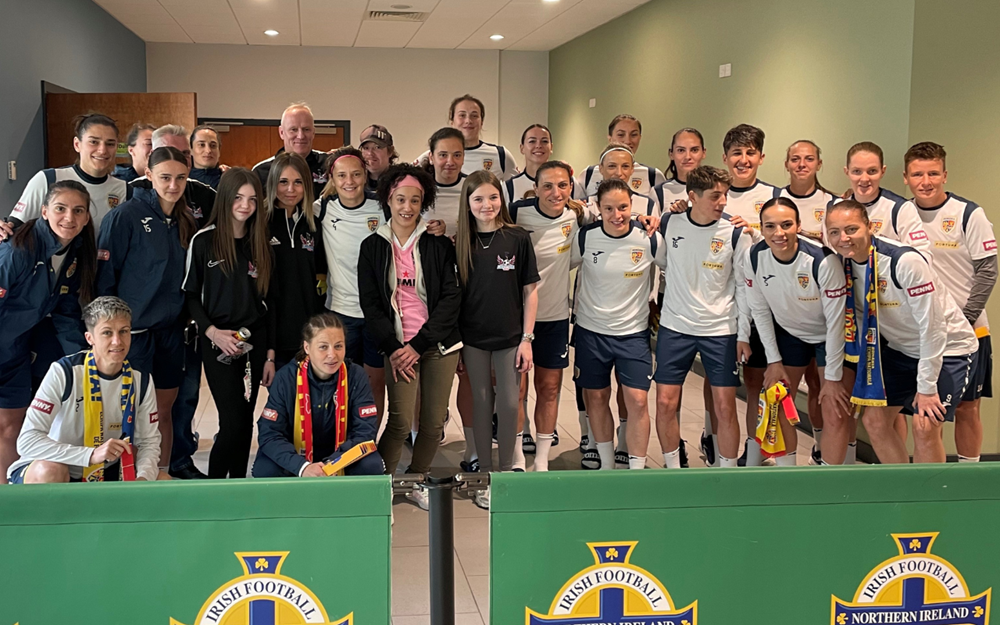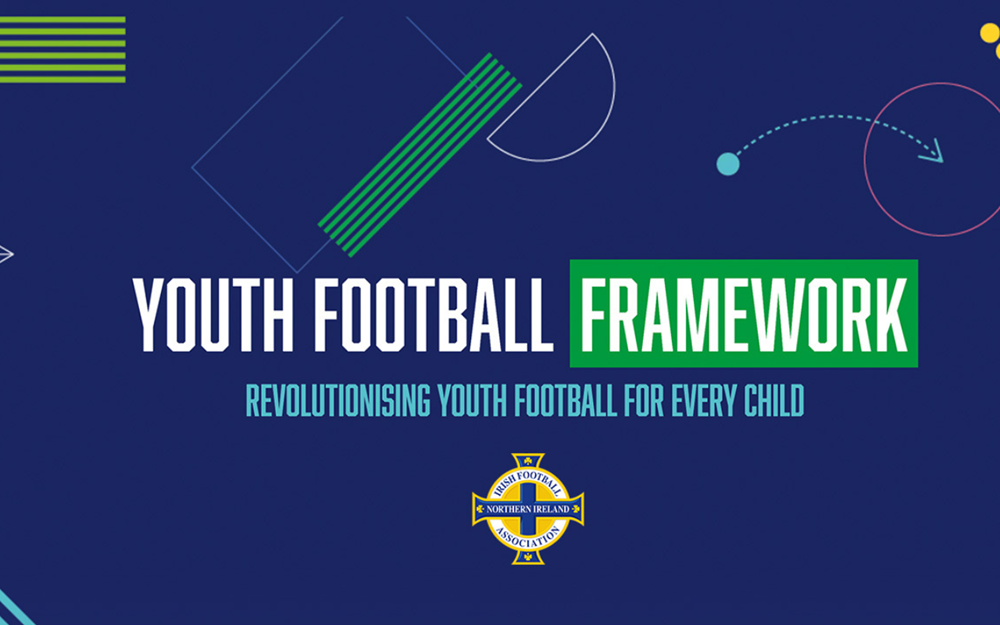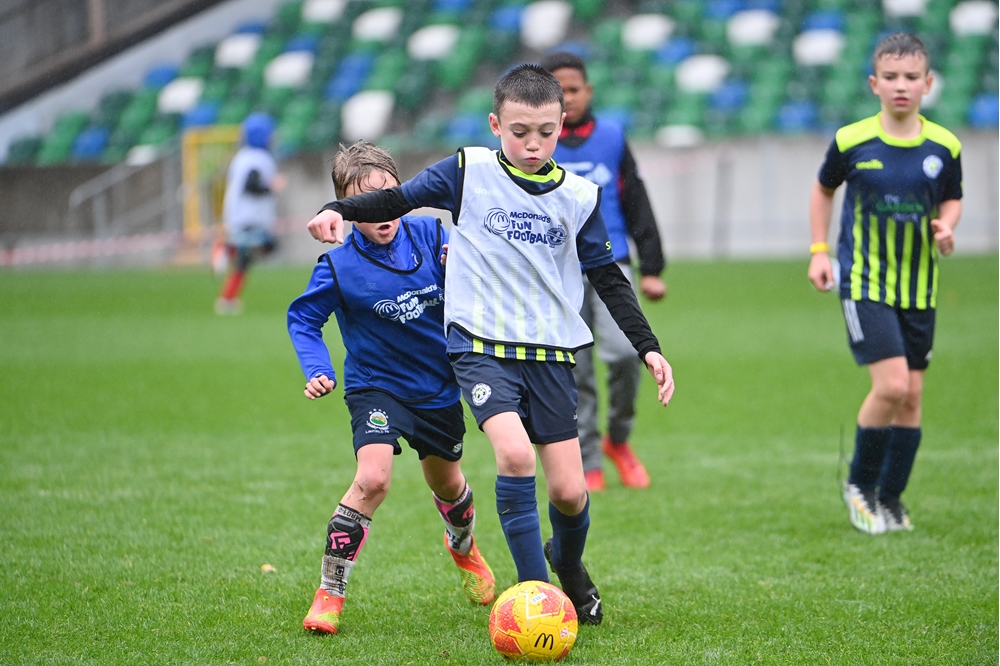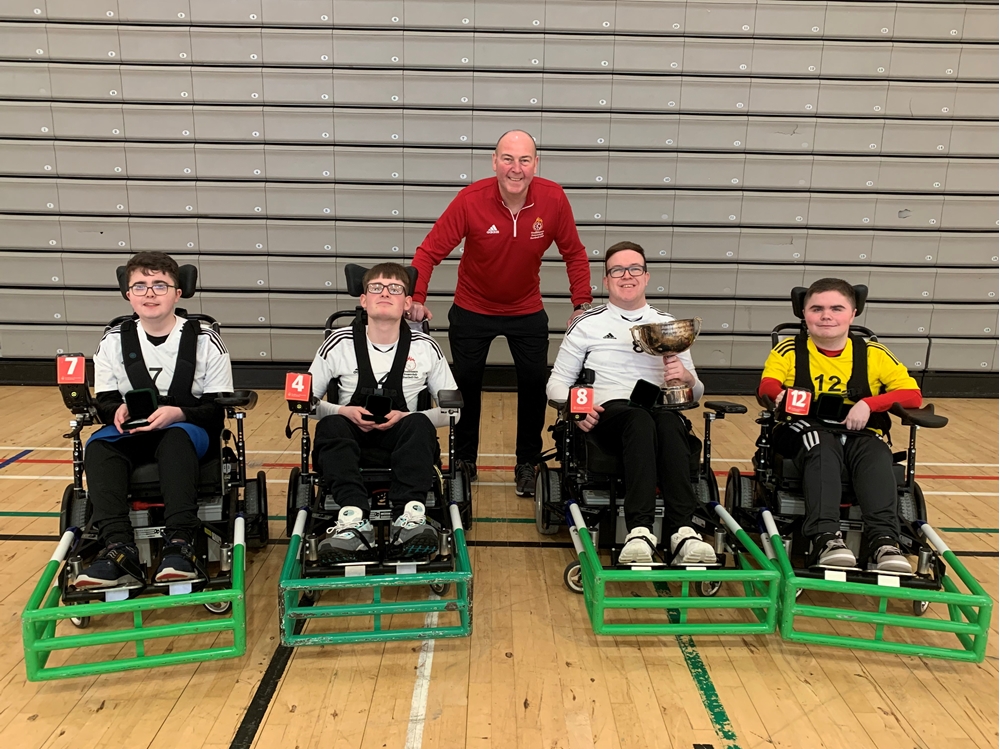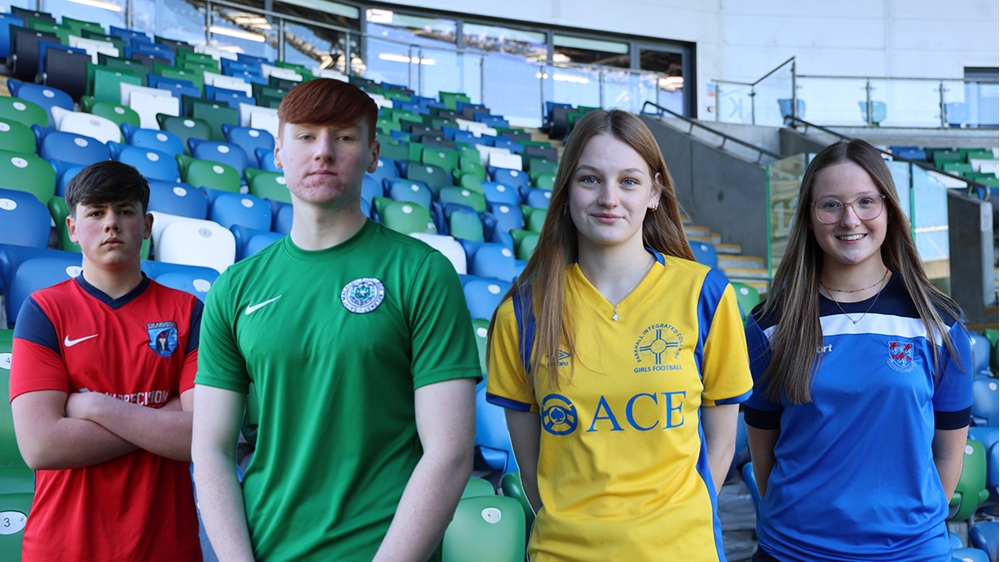
Phase one of research into a schools sports programme run by the Irish FA Foundation and Ulster GAA is set to be launched remotely due to the coronavirus pandemic.
The study into the impact of the Department of Education-funded Sports Programme is scheduled to begin this month.
Claire Rea, Sports Programme co-ordinator with the Irish FA Foundation, revealed that due to the challenges of Covid-19 the research will initially be focused on remote work with coaches, schools and teachers around the key outcomes of the programme. And it will move to a more direct approach with pupils as restrictions are lifted.
“Teachers will be asked to reflect on the programme and the learning and professional development that took place in workshops and coaching sessions as well as coach development opportunities,” she explained.
The programme’s impact will also be measured in terms of the effect it has had on increasing physical activity and reducing sedentary lifestyles.
And researchers will eventually be asking pupils to think about the impact the programme has had on their confidence, self-esteem, motivation to learn and on their achievements.
Following changes to the DENI-backed Sports Programme last year the Irish FA Foundation and Ulster GAA refocused the delivery of their physical literacy and health education programmes from Foundation and Key Stage 1 pupils to working with Key Stage 2 students in schools.
Delivered by 24 coaches across the foundation and GAA, the programme is designed to interact with 32,000 children across Northern Ireland during the school year, and the coaches work closely with around 700 teachers.
The foundation and GAA coaches are also tasked with delivering both cross-curricular and healthy lifestyle themes in association with physical literacy work in curriculum time.
Following a tender process Physical Intelligence was commissioned to undertake the Schools Programme Research Project focusing on the impact of the programme.
As part of the project the research company will be engaging with around 4500 pupils, 250 teachers and with parents and other key stakeholders in education and community settings.
As well as the direct impact the programme has had on pupils and teachers Physical Intelligence will also be looking to establish the impact it has against the key outcomes of supporting connected learning, raising confidence, resilience, self-esteem and motivation of all pupils, development opportunities for principals, teachers and wider staff plus well-being and mental health.
